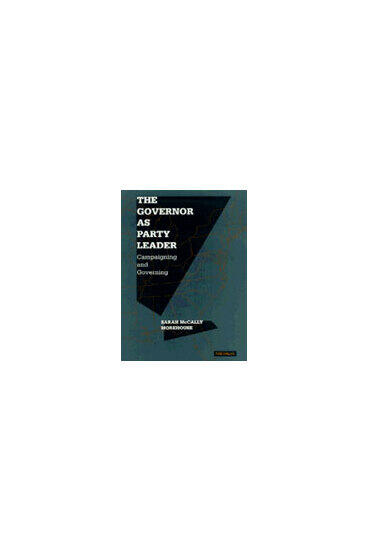The Governor as Party Leader
Campaigning and Governing
Discusses the relationship between the way governors are elected and their ability to obtain approval of their policy agenda
Description
As states are increasingly called on to assume more of the burden of conducting our nation's social policy, understanding the way the head of state government--the governor-- builds support for policy intiatives becomes critically important if we are to understand how states will respond to these challenges.
Sarah McCally Morehouse explores the relationship between governors as political campaigners and as policy makers and presents important new evidence on the link between the way a governor is elected and the governor's strength in making policy. Looking at gubernatorial campaigning and later the ability of the governor to affect the policy-making process, Morehouse is able to draw conclusions about the impact of the way a governor is elected on the governor's ability to lead.
Morehouse's analysis is based on a study of the process of selecting governors in ten states, five with strong parties and five with weak parties, conducted during the 1982 and 1994 gubernatorial elections. Roll call votes on governors' policy initiatives were then used to measure patterns of support for the governors' programs after the elections.
The author tests the party responsibility model by investigating the way governors and state parties join in the effort to nominate, elect, and govern. In states where the party is strong and the party organization important in the selection of a gubernatorial candidate, the author finds that party support is highly correlated with support for the governor's program in the legislature. In states where party control over the selection of candidates is weak, party support for the governor's program in the legislature is less important and the governor must build support outside the party.
This book will appeal to those who are interested in state politics, electoral politics, and the ways that states will respond to new demands to deal with social issues.
Sarah McCally Morehouse is Professor Emeritus in the Department of Political Science, University of Connecticut.
Sarah McCally Morehouse is Professor Emeritus in the Department of Political Science, University of Connecticut.

